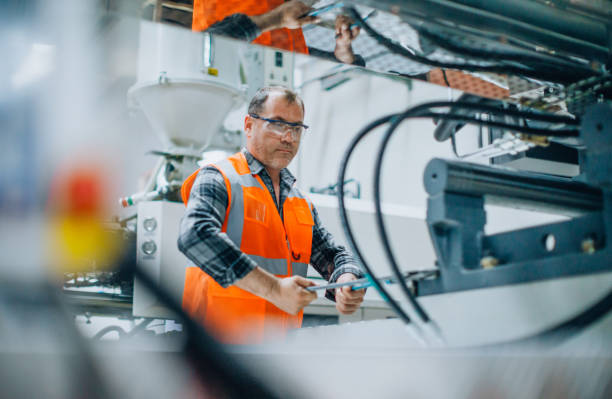In the ever-evolving landscape of the industrial sector, machining manufacturing has emerged as a transformative force. The precision, efficiency, and innovation associated with machining processes are redefining how industries operate, pushing boundaries, and setting new standards for production and quality.
Technological Advancements
One of the primary drivers of this revolution is technological advancement. Modern machining manufacturers are leveraging cutting-edge technologies such as computer numerical control (CNC) machines, additive manufacturing, and robotics. These technologies enable manufacturers to produce components with unprecedented accuracy and consistency. CNC machines, for example, are capable of executing complex designs with micrometer precision, which is crucial for industries such as aerospace, automotive, and electronics that demand high precision.
Furthermore, the integration of artificial intelligence (AI) and machine learning into machining processes is enhancing predictive maintenance and quality control. By analyzing data from machines and sensors, AI systems can predict tool wear, optimize machining parameters, and ensure that quality standards are consistently met. This not only reduces downtime but also minimizes waste, contributing to a more sustainable manufacturing process.
Efficiency Improvements
Efficiency is a cornerstone of modern industrial operations. Machining manufacturing is enhancing efficiency through automation and process optimization. Automated machining systems can operate 24/7, significantly increasing productivity and reducing lead times. This is particularly beneficial in high-demand sectors where time-to-market is critical.
Moreover, advancements in tooling materials and techniques have led to faster machining speeds and longer tool life. High-speed machining, for instance, combines high cutting speeds with advanced cooling techniques to achieve rapid material removal rates without compromising quality. This results in shorter production cycles and lower operational costs.
Impact on Various Industries
The impact of machining manufacturing extends across multiple industries. In the aerospace sector, for example, the precision and reliability of machined components are vital for ensuring the safety and performance of aircraft. Machining processes are used to produce everything from turbine blades to structural components, meeting the stringent regulatory standards of the industry.
In the automotive industry, machining manufacturing supports the production of engine components, transmission parts, and intricate body panels. The ability to produce lightweight yet robust components is essential for improving fuel efficiency and reducing emissions in modern vehicles.
The medical industry also benefits significantly from machining manufacturing. The production of medical devices and implants requires exceptional precision and biocompatibility. Machining processes allow for the manufacture of complex shapes and fine features necessary for custom implants and surgical instruments.
Future Prospects
As we look to the future, the potential of machining manufacturing is boundless. The convergence of digital technologies and machining processes promises to unlock new possibilities. The concept of the smart factory, where machines, systems, and humans are interconnected, will further streamline operations and enhance decision-making.
Additive manufacturing, or 3D printing, when combined with traditional machining, will enable hybrid manufacturing approaches that leverage the strengths of both methods. This will allow for the creation of complex geometries and customized solutions that were previously unattainable.
Moreover, the focus on sustainability is driving the development of eco-friendly machining practices. Efforts are underway to minimize material waste, reduce energy consumption, and recycle machining by-products. These initiatives are crucial for aligning machining manufacturing with global sustainability goals.
In conclusion, machining manufacturing is revolutionizing the industrial sector by introducing technological advancements, enhancing efficiency, and impacting a wide range of industries. As the field continues to evolve, it holds the promise of shaping a future where manufacturing is more precise, efficient, and sustainable than ever before. The journey of innovation in machining manufacturing is far from over, and its potential to transform industries continues to inspire.

